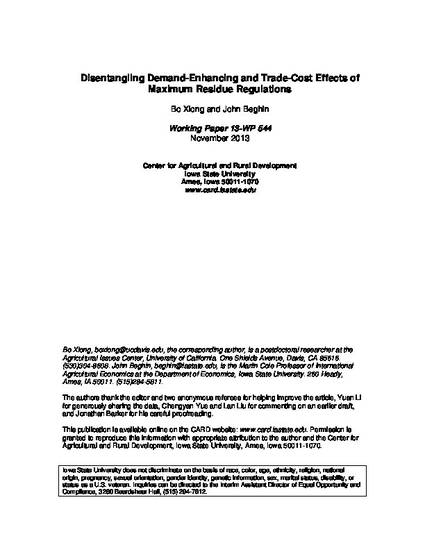
Article
Disentangling Demand-Enhancing and Trade-Cost Effects of Maximum Residue Regulations
Economic Inquiry
Document Type
Article
Disciplines
Publication Version
Submitted Manuscript
Publication Date
1-1-2014
DOI
10.1111/ecin.12082
Abstract
Maximum residue level (MRL) regulations in plant products can create unnecessary trade barriers on one hand and enhance demand via risk mitigation or quality assurance on the other. We stipulate a generalized gravity equation model to disentangle the effects of MRLs on the import demand and foreign exporters' supply. Applying the framework to the MRLs on pesticides imposed by high-income Organization for Economic Co-operation and Development countries, we find that the MRLs jointly enhance the import demand and hinder foreign exporters' supply. In addition, exporters from the less and least developed countries are more constrained by the MRLs than their competitors from the developed world.
Citation Information
Bo Xiong and John Beghin. "Disentangling Demand-Enhancing and Trade-Cost Effects of Maximum Residue Regulations" Economic Inquiry Vol. 52 Iss. 3 (2014) p. 1190 - 1203 Available at: http://works.bepress.com/john-beghin/115/

This is a working paper of an article from Economic Inquiry 52 (2014): 1190, doi:10.1111/ecin.12082. Posted with permission.